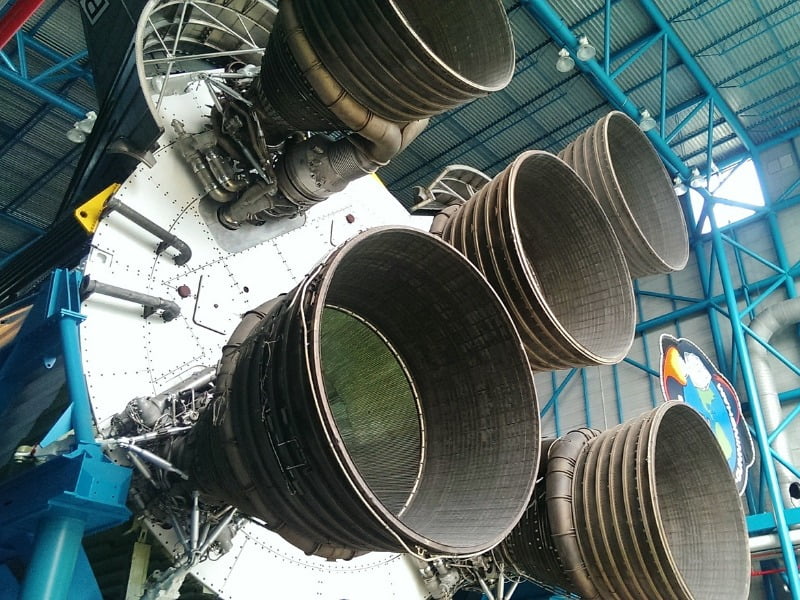A planned strategic update for Australia’s burgeoning space sector is in doubt with the new government yet to back the $9.5 million initiative announced nearly a year ago, adding to industry concerns about lost momentum.
The Albanese government won’t commit to completing the Space Strategic Update (SSU) promised by the Coalition in March last year because it is still considering its alignment with its own investment, technology and defence policies.
Originally planned to take 18 months to two years to develop by the Australian Space Agency, the SSU was to provide a “vision” for the sector through to the 2040s that united civil and defence space efforts with a more cohesive strategy.

A space policy expert says while little detail has emerged since March, dropping the initiative would be a lost opportunity for the Albanese government and add to concerns in the sector it is being overlooked.
“I think it’s really important that the Albanese government gets this done,” Australian Strategic Policy Institute senior analyst Dr Malcolm Davis told InnovationAus.com.
“If they don’t, then it really will undermine confidence within Australia and beyond about our country’s space [sector] and you will see knock on effects from that that would I think be really counterproductive for us achieving some of the goals that we set out to achieve when the Space Agency was first opened in 2018.”
The Australian Space Agency released a 10-year plan for the civil sector in 2019, aiming to triple the size of the civil space sector to $12bn. The Department of Defence launched Australia’s Defence Space Strategy last year.
In March, then-minister for Science and Technology Melissa Price said the SSU would help unite the civil and Defence space sectors with better coordination of investments to develop a space sector that delivers both civil and defence capabilities.
The SSU was budgeted $9.5 million over two years from 2021/22 in the Coalition’s March budget. But the initiative does not appear in the Albanese government’s October budget and officials told an Senate Estimates hearing in November that the initiative and any of its uncommitted funding remains under consideration.
A spokesperson for Industry minister Ed Husic has confirmed the initiative is far from locked in.
“The Space Strategic Update was an initiative of the previous government,” the spokesperson told InnovationAus.com
“The Albanese Labor government will consider long term national space priorities in the context of our broader agenda. This will take into account government priorities including the National Reconstruction Fund, critical technology development – such as robotics, quantum computing and artificial intelligence – and the Defence Strategic Review being led by Deputy Prime Minister Marles.”
The Industry department and Australian Space Agency, which had been set to begin work on the SSU in July before the change of government, declined to provide any indication on how much investment had been made in the SSU or if there was still a planned release.
Instead, a spokesperson for the Australian Space Agency said it had been consulting with the space industry throughout the last year, with feedback leading to new products and better collaboration with states and territories.
Dr Davis said more information and a decision one way or another on the SSU is needed for the Australian space sector.
“It is rather frustrating for those of us in the space policy sector to be kind of being kept out of the loop and in the dark on this very important document,” he said. “If it’s the case that the Albanese government is going to do a go slow on this and hold off maybe until after the next federal budget, then that’s a bit frustrating too.”
Parts of the Australian sector are frustrated by what is being perceived as a lack of commitment from the new government, Dr Davis said.
The Space Industry Association of Australia (SIAA) launched a broadside at the new government in September last year, questioning the Albanese government’s commitment to the area and the placement of space within the Industry portfolio rather than Home Affairs or Prime Minister and Cabinet.
But the industry group has landed several meetings with the Australian Space Agency, the Industry department, and Minister, while individual space businesses have also met with the new government nearly 200 times since it was sworn in.
Funding for space grant programs was also spared in the Albanese government’s spending audit, although how it is distributed may also change.
An official government response was also provided to a parliamentary inquiry into the local space industry and its 38 recommendations. But there was little commitment to concrete changes and the response also suggested a wait for other policies.
With worsening economic conditions and an unstable geopolitical environment greeting the new government, some caution is understandable, Dr Davis says. But the clock is ticking for the Australian space sector and the SSU would be useful, he said.
“They can’t afford to leave it too long because if they leave it too long then suddenly you got to lose momentum. Companies and organisations are going to start losing confidence and that’s when you get companies closing down and going overseas. Jobs are lost and it’s just snowballs from there. “







